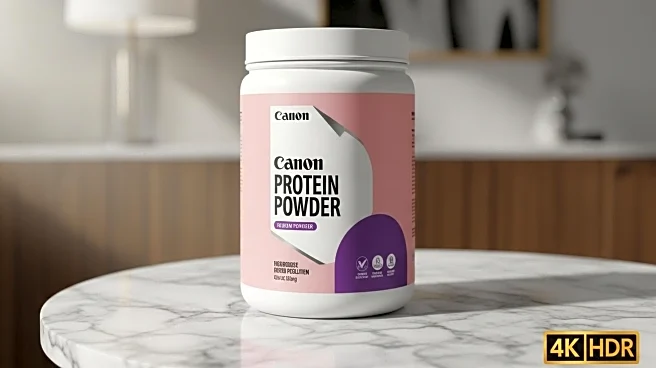What's Happening?
David Protein is embroiled in a legal dispute over its acquisition of Epogee and the subsequent control of the fat substitute EPG. The controversy began when David Protein acquired Epogee on May 29, leading to a lawsuit from three companies—OWN Your Hunger, Lighten Up Foods, and Defiant Foods—alleging that David Protein is monopolizing the EPG market. These companies claim that their products are designed around EPG's unique properties, and losing access to it has caused significant harm. David Protein counters that it is not obligated to sell EPG indefinitely to firms without long-term contracts and argues that there are numerous alternatives available. The plaintiffs have filed amended complaints, focusing on the global market for EPG supply rather than specific food markets. The case is being heard in the Southern District of New York.
Why It's Important?
The outcome of this legal battle could have significant implications for the food industry, particularly for companies relying on specialized ingredients like EPG. If David Protein is found to be monopolizing the market, it could lead to increased scrutiny and regulation of ingredient supply chains. This case highlights the challenges companies face when dependent on proprietary ingredients and the importance of securing long-term supply agreements. The decision could affect the availability and pricing of low-calorie food products, impacting both manufacturers and consumers. Additionally, it raises questions about patent rights and the obligations of patent holders in the marketplace.
What's Next?
The court's decision will be pivotal in determining whether David Protein can continue its current business practices or if it will be required to offer EPG to competitors. The plaintiffs are likely to continue refining their arguments to demonstrate the necessity of EPG for their products. Depending on the ruling, other companies may reconsider their reliance on proprietary ingredients and seek more secure supply arrangements. The case could also prompt discussions on antitrust laws and their application to ingredient markets, potentially influencing future legal standards and business strategies.
Beyond the Headlines
This case underscores the ethical and legal complexities surrounding patent rights and market competition. It raises questions about the balance between innovation and fair market practices, particularly in industries reliant on patented technologies. The dispute may lead to broader discussions on the responsibilities of companies holding patents and their impact on market dynamics. Long-term, this could influence how businesses approach ingredient sourcing and contract negotiations, potentially leading to more collaborative and transparent industry practices.










